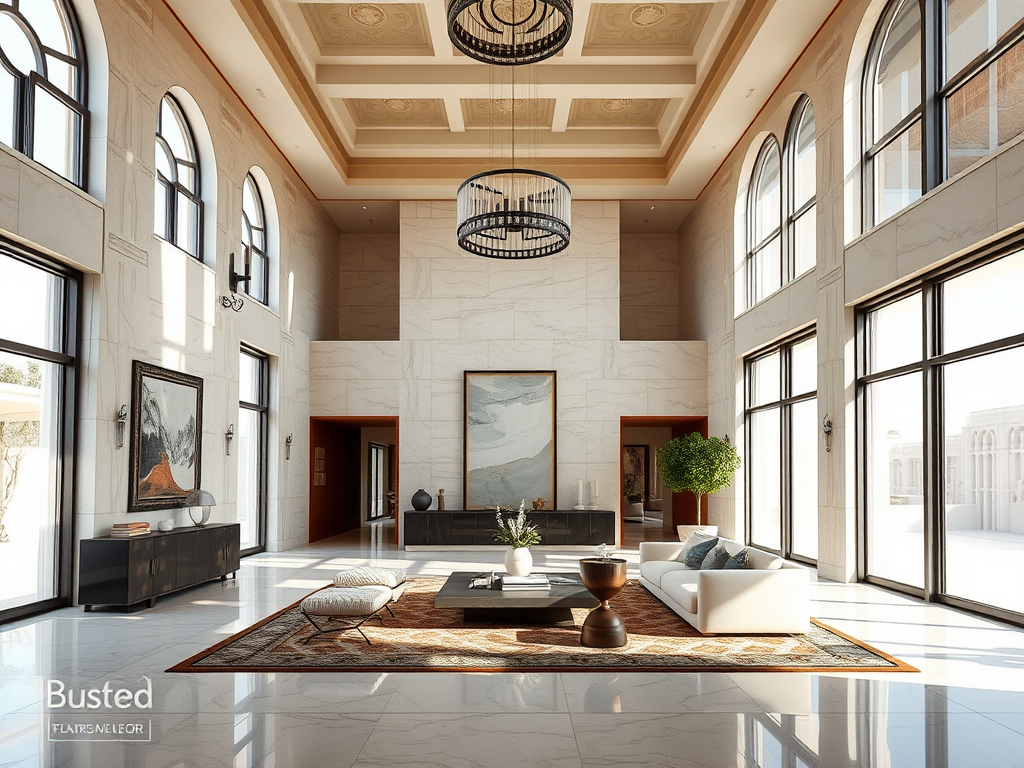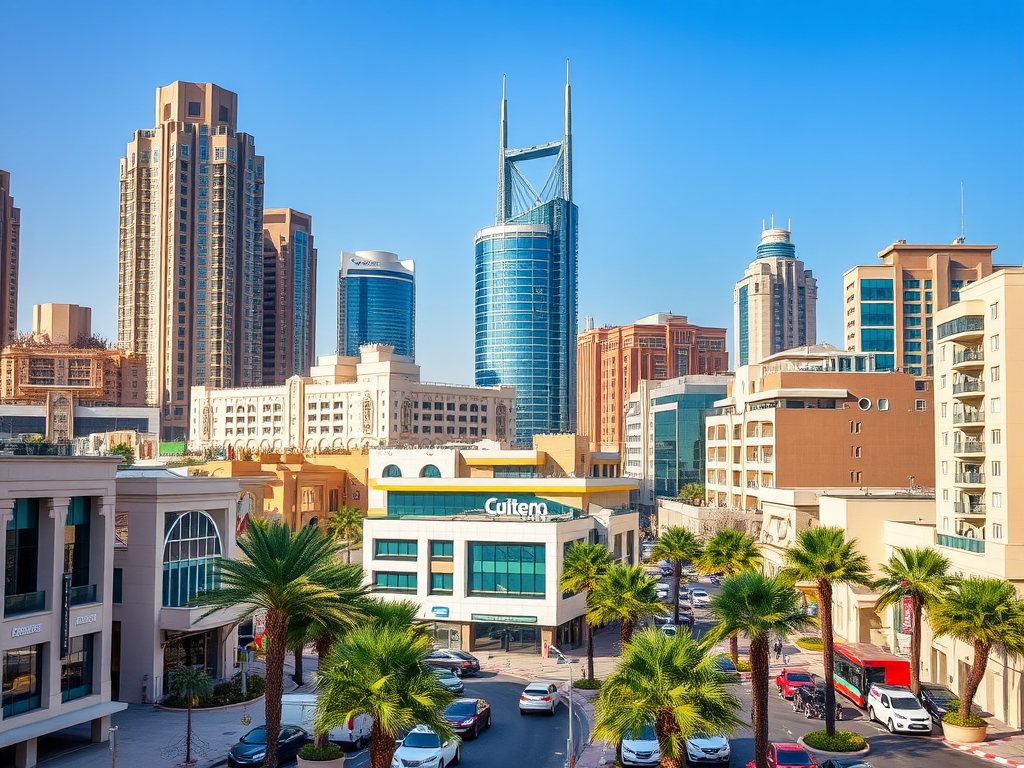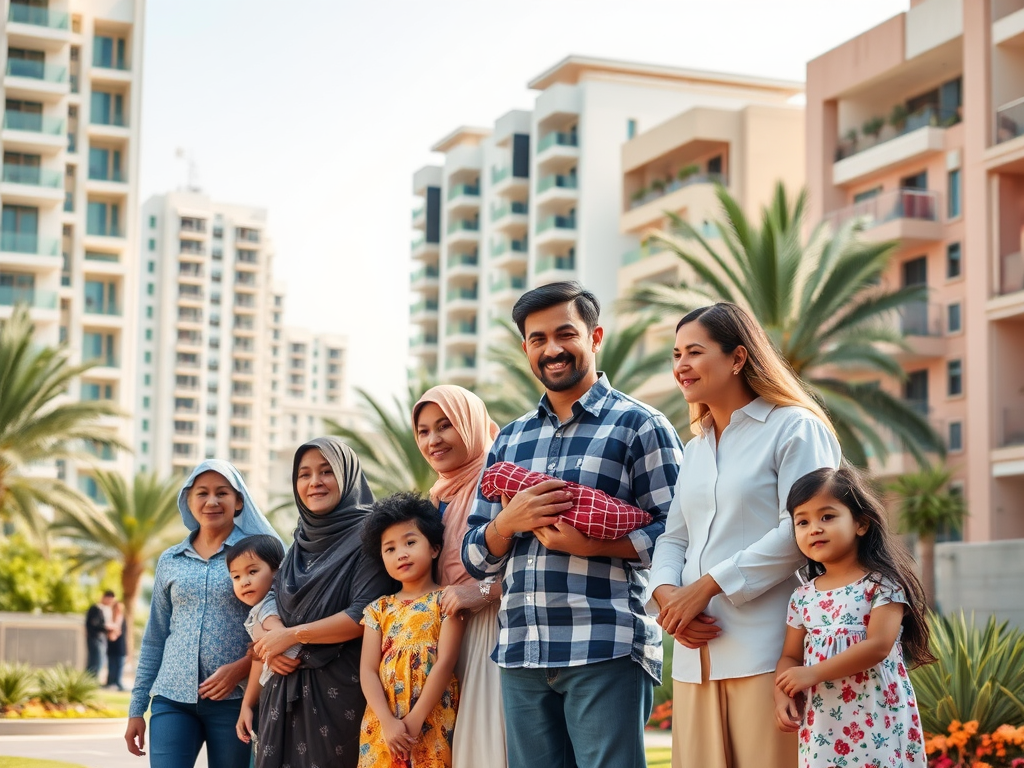Dubai’s real estate market is a vibrant tapestry woven from a multitude of cultural influences. The city’s rapid development and global appeal are significantly shaped by its diverse population, which fuels demand and innovation in real estate. This article explores how cultural diversity manifests in Dubai’s property market, impacting everything from property design to investment trends. Understanding these dynamics is crucial for investors, developers, and residents alike, as they navigate this uniquely cosmopolitan landscape. By examining how various cultures influence preferences and choices in real estate, we can gain insights into the future of Dubai’s real estate sector.
Cultural Influences on Property Preferences

Dubai is home to a melting pot of nationalities, each bringing its own preferences for living conditions and property types. This cultural diversity shapes the kind of properties that are in demand, as different groups prioritize different features. For instance, expatriates from Western countries may prefer modern apartments with high-end amenities, while families from Asia may look for spacious homes that can accommodate larger households. Additionally, cultural practices influence preferences in layout, communal spaces, and even interior design. Here are some of the key property features that vary by culture:
- Open-plan spaces favored by Western populations.
- Multiple bedrooms and bathrooms for families, common among Asian cultures.
- Security and gated communities preferred by individuals from markets with high safety concerns.
- Proximity to workplaces and schools, prioritized by many expatriates.
- Leisure facilities like gyms and pools, relevant in both cultures but emphasized differently.
Investment Trends Shaped by Global Economies

Investment trends in Dubai’s real estate market are often a reflection of global economic conditions and the financial health of various cultures. Investors from developing countries see Dubai as a safe haven, driving up demand for luxury properties and investments in high-end developments. Conversely, investors from mature economies focus on high-return properties, like commercial real estate or rental apartments. As cultural awareness grows, so does the interest in eco-friendly and sustainable developments, which appeal to younger generations across various cultures. The following are key investment trends influenced by cultural diversity:
- Increased demand for sustainable living spaces.
- A surge in interest for low-maintenance properties, especially among expatriates.
- Investments in mixed-use developments, combining residential, commercial, and leisure spaces.
- Focus on properties within freehold areas appealing to foreign investors.
- Growing interest in short-term rental investments driven by tourism.
The UAE government plays a pivotal role in fostering a welcoming environment for cultural diversity, significantly impacting the real estate sector. Policies that encourage foreign investment have led to a boom in real estate projects catering to expatriates. Initiatives such as long-term residency visas for property investors have further solidified Dubai’s position as a global real estate hotspot. The government also promotes cultural festivals and community events that celebrate various heritages, enhancing social cohesion and the attractiveness of residential areas. This commitment to cultural diversity directly translates into vibrant, mixed-communities where individuals from different backgrounds can thrive. Moreover, it encourages developers to create inclusive spaces that comply with various cultural norms and practices.
Future Outlook: Diversity as a Driving Force
The future of Dubai’s real estate market appears bright, with cultural diversity continuing to be a driving force for innovation and growth. As the city’s demographics evolve, we can expect to see even more unique real estate offerings that cater to an eclectic mix of preferences. Future projects will likely be designed with an emphasis on multi-functional spaces that can seamlessly accommodate the diverse ways that different cultures inhabit and interact with property. From ethics in design to sophisticated amenity packages, the focus will remain on creating environments that resonate with a broad audience. This adaptation to cultural diversity positions Dubai as not just a city of luxury, but also one of inclusivity and adaptability.
Conclusion
Cultural diversity is undeniably a cornerstone in shaping the dynamics of Dubai’s real estate market. Its influence is felt through varying property preferences, investment trends, and the overall evolution of the market. As more cultures blend in this global city, the possibilities for innovative property solutions and community interactions are endless. Investors, developers, and residents must remain attuned to the changing landscape, leveraging cultural diversity as a powerful tool for growth and engagement. Embracing this diversity will not only enrich the property market but will also foster a greater sense of community within the vibrant city of Dubai.
Frequently Asked Questions
1. How does cultural diversity affect real estate demand in Dubai?
Cultural diversity shapes the preferences and needs of potential buyers and renters, influencing the types of properties that are in high demand, including their layouts, amenities, and community features.
2. What types of properties are most popular among expatriates in Dubai?
Expatriates in Dubai often favor modern apartments with high-end amenities, spacious villas for families, and properties with strong security features due to safety concerns.
3. Are there any government initiatives encouraging real estate investment among foreigners?
Yes, the UAE government offers various initiatives, such as long-term residency visas for property investors and policies promoting foreign investment, which collectively boost Dubai’s real estate market.
4. How can developers cater to diverse cultural needs?
Developers can cater to diverse cultural needs by incorporating inclusive design elements that reflect various cultural practices, creating communal spaces, and considering different family structures and lifestyles in their projects.
5. What is the future outlook for Dubai’s real estate market regarding cultural diversity?
The future outlook is positive, with cultural diversity expected to drive innovation in property design, investment trends, and community development, further enriching the real estate landscape in Dubai.
